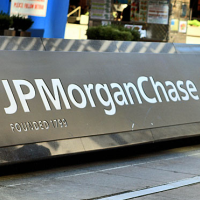Obama Administration Threatens to Pull Plug on JPMorgan Trading in Energy Market

Nearly three months after the U.S. government sued a reluctant JPMorgan Chase & Co. for documents during an investigation of allegations that it had manipulated California energy prices, the Federal Energy Regulatory Commission (FERC) is threatening to suspend its energy trading unit from the state market.
JPMorgan denied manipulating the market and said it had committed an “inadvertent factual error in papers related to discovery and promptly informed the commission of this mistake.”
The bank has 21 days to show cause how its version of affairs dovetails with FERCs contention that it “violated section 35.41(b) by submitting misleading information and
omitting material facts in communications with the Commission, the California Independent System Operator Corporation (CAISO), and CAISO’s Department of
Market Monitoring (DMM).”
The commission also asked JPMorgan why its “authorization to sell electric energy, capacity, and ancillary services at market-based rates should not be suspended.”
FERC’s action concerns JPMorgan’s alleged stonewalling and misrepresentation in providing information to government parties, and doesn’t address accusations of market manipulation. All five commissioners signed off on the show cause order, but two of them expressed reservations about taking a separate regulatory action when enforcement proceedings loom over the underlying issue of JPMorgan’s trading behavior.
FERC became involved after CAISO, which runs the state’s electrical transmission grid, complained in 2011 about the banking giant. CAISO ultimately claimed that JPMorgan had gamed the state’s energy market to the tune of $73 million.
Energy experts consulted by The Los Angeles Times say the scheme being investigated involves manipulation of the state’s market-based energy auction system. The bank essentially submits preliminary low bids for energy (perhaps even at a negative amount), thus qualifying for “a bid cost recovery” payment even if they aren’t accepted. Those bids would be money losers for JPMorgan if accepted, but the next day it submits real bids too high to be accepted and pockets the windfall.
While not flat out saying in its show cause order that JPMorgan was involved in fraud, deception or misrepresentation, the federal agency made clear that, “In granting market-based rate authority, FERC expects that a company’s behavior will not involve fraud, deception or misrepresentation.”
FERC has conducted 11 investigations of alleged manipulation of energy markets since January 2011, one of which resulted in a $245 million settlement with Constellation Energy Group Inc. The agency issued a preliminary finding last December that Deutsche Bank AG had manipulated the California market.
-Ken Broder
To Learn More:
Federal Regulators Launch Probe of JPMorgan's Energy Trading in California (by Dale Kasler, Sacramento Bee)
JPMorgan Power-Trading Business Faces Suspension, FERC Says (by Kasia Klimasinska, Bloomberg)
Order to Show Cause (Federal Energy Regulatory Commission) (pdf)
FERC Initiates Proceeding into Actions by JP Morgan (Federal Energy Regulatory Commission)
JPMorgan Accused of Manipulating Power Market (by Ken Broder, AllGov)
- Top Stories
- Unusual News
- Where is the Money Going?
- Controversies
- U.S. and the World
- Appointments and Resignations
- Latest News
- Musk and Trump Fire Members of Congress
- Trump Calls for Violent Street Demonstrations Against Himself
- Trump Changes Name of Republican Party
- The 2024 Election By the Numbers
- Bashar al-Assad—The Fall of a Rabid AntiSemite






Comments